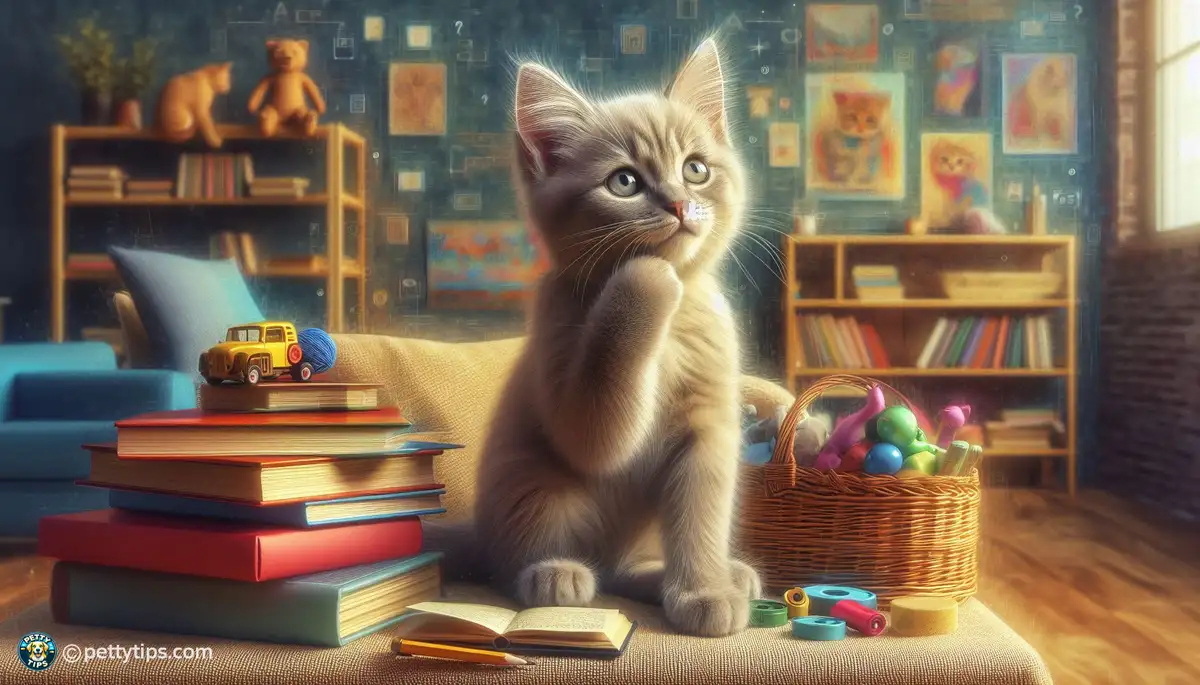- Home
- Cat Behavior
- Unveiling the Influence of Parenting Style on Cat Intelligence
Unveiling the Influence of Parenting Style on Cat Intelligence

The Feline Mind: Understanding Cat Intelligence
Decoding the Intricacies of Cat Intelligence
Cats are often perceived as enigmatic creatures, with their behaviors sometimes appearing inscrutable to even the most seasoned pet owners. However, beneath their independent facade lies a complex and sophisticated intelligence that is shaped by various factors, including genetics, environment, and yes, parenting style. Understanding the intricacies of cat intelligence requires delving into their cognitive abilities, problem-solving skills, and emotional intelligence.
The Myth of Cat Independence
Contrary to popular belief, cats are not solitary creatures devoid of social intelligence. While they may not exhibit the same pack mentality as dogs, they are capable of forming deep bonds with their human companions and other animals in the household. In fact, studies have shown that cats possess a social intelligence that allows them to navigate complex social dynamics and form alliances with both humans and other felines. This social acumen is influenced by their early interactions with their caregivers, highlighting the importance of parenting style in shaping their cognitive development.
Nurturing the Feline Mind
Just as human children benefit from nurturing and supportive parenting, so too do cats thrive in environments where they feel safe, loved, and stimulated. Providing enriching experiences, such as interactive play, puzzle toys, and mental stimulation exercises, can help foster cognitive development and enhance problem-solving skills in cats. Additionally, positive reinforcementtraining techniques can strengthen the bond between cats and their owners, while also encouraging desirable behaviors and discouraging unwanted ones.
The Impact of Parenting Style on Cat Behavior
Authoritative vs. Authoritarian: Finding the Balance
When it comes to parenting style, there are various approaches that cat owners may adopt, ranging from authoritative to authoritarian. An authoritative parenting style emphasizes warmth, responsiveness, and clear communication, while allowing for independence and autonomy. On the other hand, an authoritarian parenting style is characterized by strict rules, punishment, and control, often leading to fear and anxiety in cats. Finding the right balance between these two extremes is crucial for fostering a positive and nurturing environment for feline cognitive development.
The Role of Early Socialization
Early socialization plays a critical role in shaping a cat's behavior and temperament. Kittens who are exposed to a variety of stimuli, such as different people, animals, and environments, during their formative weeks are more likely to grow up confident, adaptable, and well-adjusted. Conversely, kittens who are deprived of socialization opportunities may develop fear, anxiety, and aggression later in life. Therefore, it is essential for cat owners to prioritize early socialization and provide their kittens with positive experiences that lay the foundation for healthy cognitive development.
The Power of Positive Reinforcement
Positive reinforcement is a powerful tool for shaping behavior in cats, as it encourages desirable behaviors through rewards and praise. By using treats, toys, and affection as rewards for good behavior, cat owners can reinforce positive habits and discourage negative ones without resorting to punishment or coercion. This approach not only strengthens the bond between cats and their owners but also fosters a positive learning environment that promotes cognitive development and emotional well-being.
Cultivating a Cat-Friendly Environment
Creating an Enriching Environment
A cat-friendly environment is one that stimulates the mind, satisfies natural instincts, and promotes overall well-being. This includes providing opportunities for exploration, play, and mental stimulation, as well as ensuring access to essential resources such as food, water, litter boxes, and scratching posts. By creating an enriching environment that caters to their physical, emotional, and cognitive needs, cat owners can help their feline companions thrive both mentally and physically.
The Importance of Environmental Enrichment
environmental enrichment is essential for preventing boredom, alleviating stress, and reducing undesirable behaviors in cats. This can involve introducing new toys, rotating existing ones, creating vertical spaces for climbing and perching, and providing opportunities for interactive play. Additionally, puzzle feeders, treat-dispensing toys, and clicker training exercises can keep cats mentally stimulated and engaged, preventing cognitive decline and promoting lifelong learning.
Fostering a Sense of Security
A sense of security is vital for promoting trust, confidence, and emotional well-being in cats. This can be achieved by establishing predictable routines, providing safe hiding spots, and minimizing exposure to potential stressors such as loud noises, unfamiliar animals, and changes in the environment. By creating a stable and secure environment, cat owners can help their feline companions feel comfortable and confident, enabling them to thrive both mentally and emotionally.
Conclusion: Nurturing the Feline Mind
Embracing a Holistic Approach
In conclusion, the influence of parenting style on cat intelligence cannot be overstated. By embracing a holistic approach that prioritizes positive reinforcement, early socialization, and environmental enrichment, cat owners can help unlock their feline companions' full potential. By understanding the intricacies of cat intelligence and tailoring their caregiving practices accordingly, pet owners can foster a deep and meaningful bond with their cats while promoting cognitive development, emotional well-being, and overall quality of life.
